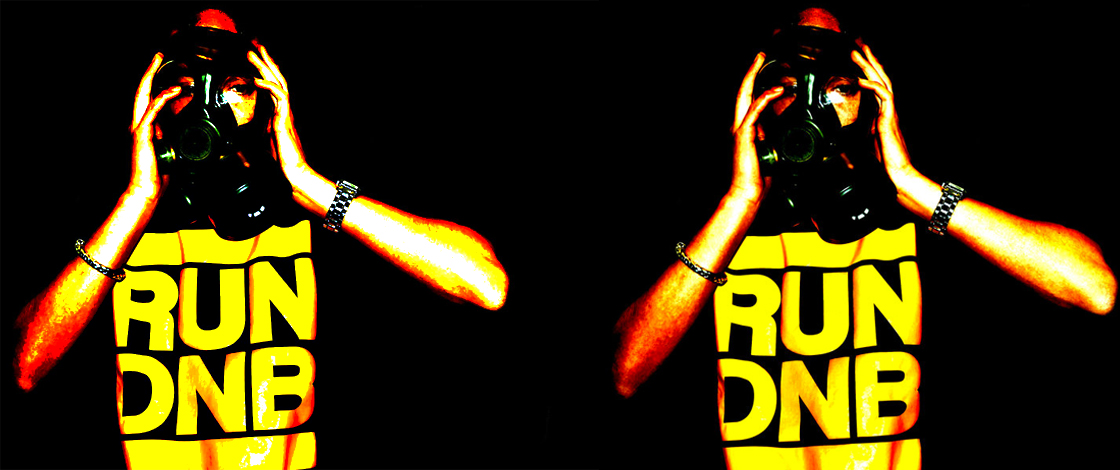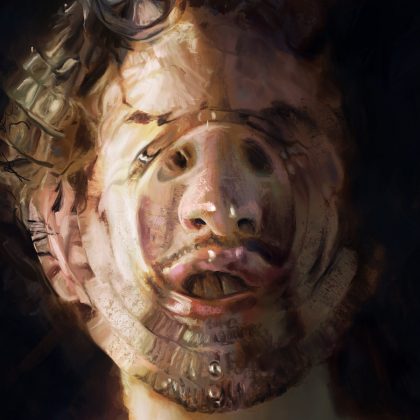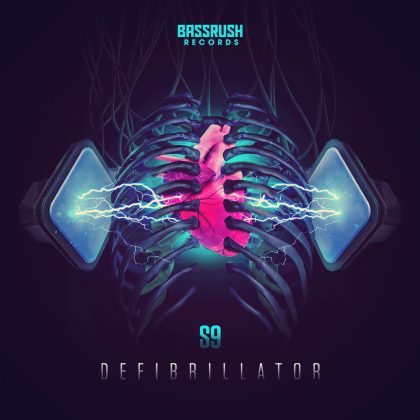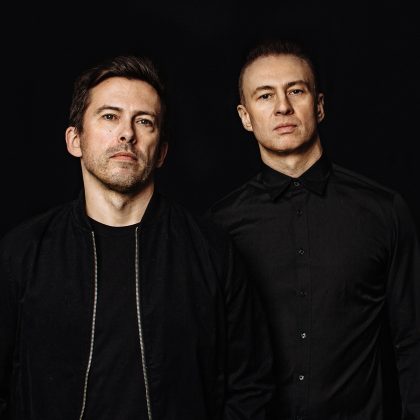“You Ain’t Old-School”—Why Do Drum & Bass Heads Weigh Everything in Years?

Recently I was at a drum & bass club in Southern California, standing outside being cool—like junglists/D&B heads do—when I was approached by a fellow junglist who was very energetically pontificating on how old-school he was. Many things were said, including standard lines like, “People today don’t know the real story of D&B” and “Nothing good has been made since 2000.” Eventually he said, “I don’t know you, and I know everyone in this scene. You must be new. I’m OG; I’m old-school. I started in this shit in 2001!”
The animated young man then looked me up and down and actually said the following: “When did you start partying?” Oh, how I had been waiting for that question. “‘94,” I said, with what I can only assume was a shit-eating grin on my face. “Ohhh, shit!” My new best friend all but did the Wayne’s World “We’re not worthy” dance. He then proceeded to rattle off names and crews for what seemed like 10 minutes. I tried not to engage him. No need to brag when you’ve got 22 years “in the scene” in your back pocket.
Now, while 100 percent true, this little anecdote is admittedly an extreme example. This does not often happen on a usual night at the club. That said, it is also an indictment of a phenomenon in the jungle and drum & bass scenes that is so prevalent, most of us don’t even bat an eyelash when the topic comes up. I am, of course, referring to the “who’s more old-school” game. I’d never questioned it myself until this spunky little junglist brought it to life in such vivid, albeit camo, color. Why do junglists and drum & bass heads hold so fast to this hierarchy in the scene? It’s beyond anything I’ve ever observed in any other music culture, save possibly hip-hop—but even there, people don’t rattle off their “years in the game” before saying their name.
There’s a lot of competition and divisiveness in bass music: dubstep versus trap versus drum & bass; UK/Europe versus US; drum & bass versus jungle. I could go on. Nothing, however, seems to be as pervasive and argument-ending as the ubiquitous vein of snobbery called “old-school” that seems to run just under the skin of every D&B head. My little encounter with this junglist caricature got me thinking: Why is old-school so important in drum & bass? What are the elements that contribute to this weird part of our culture? Is there merit to it still, or is it an outdated notion that we’d be better off tossing aside?
The Generation Game
In generic terms, almost every generation in Western culture for the last hundred years or so has criticized the generation following it for one reason or another. Usually it’s for not listening, learning or respecting the lessons and advice of the older generation. Conversely, younger generations often feel the elders are out of touch and ineffectual. In our fair community, it’s definitely true that many jungle and D&B heads feel there was a sort of “golden age” of production and partying beginning with Goldie and his contemporaries and ending about when Bad Company fizzled, circa 2001.
Around that time in the US, parties got scarce, scenes broke down, and crews dissipated. There was a lull in production worldwide as money ran out, musicians came to grips with new programs, and DJs got used to CDJs. Will we call the period from 2001–05 the “Dark Ages”? Hardly. While there weren’t necessarily fantastic dubplates around every corner, and parties went more boutique and underground, some amazing and iconic tracks were still produced.
When 2005 hit, a rash of eager, younger partiers emerged with energy to spare, money to burn, and a fiery hustle that, if sometimes misdirected, still got results. They revived parties and clubs, booked big names for massives once again, and started producing decent tracks on a larger scale. They were old enough to know some of what came before them and respected anyone who had made it through the ‘90s and early ‘00s, but this group was out to prove something. I’m still unclear on what that something was, but they carried the scene in the US for at least five or six years. I call this group “middle-schoolers,” and while in the US they tend to be a little more competitive in terms of turf, crews and shows, they kept things going while some of us old-schoolers were taking a nap.
Since about 2010, things have changed dramatically in electronic music. With unparalleled access to programs and equipment, any kid in a bedroom studio could make the next banger—and they often do. Drum & bass has been picking up momentum again, and the births of dubstep, trap and hard house have led to interesting new sounds. New clubs, promoters and DJ/producers have been springing up all over, and some of them wouldn’t know an Aphrodite from a Dieselboy.
Old- and middle-schoolers alike can get annoyed with this new crop of converts, because both camps see the scant historical knowledge as a lack of respect and recognition of the struggles that have come before. No one can deny, however, that some of the most interesting and innovative work in bass music is coming from these little brats, and even more seasoned producers are taking lessons from the tech natives. Snarky millennial or not, the new school is now a driving force in D&B, so who’s fighting it at this point?
Sick Tribal, Bruh
If there’s one thing everyone in this scene agrees on, it’s that highly syncopated, bass-driven music inspires something primal in those who heed its call. After all, drumming was the first form of human expression, and through the ages, these wide sound waves have been thought to be a grounding force. More jangly, happy tunes eventually formed and created pop music, but that primordial tribal beat never left some of us, and until finding drum & bass, we were searching for something many of us didn’t even know we’d lost. Bass misfits of the 20th and 21st centuries are thus drawn together in a sort of modern tribalism that, in some ways, mimics those old drum groups. Add to that the human need to classify oneself with a cause and like-minded individuals—especially if they’re marginalized—and there will probably be an even more staunch adherence to said “tribe.”
It gets a little tricky, however, when more fractionations of an already fractionated culture are introduced. Putting generational bias inside a very small culture, there’s nowhere left to go. Do we really need more tribes within a tribe? There’s something to be said for respecting one’s elders, but since jungle and drum & bass have been around for almost 25 years, many of the things that started the scene are distant myths to new-schoolers. Can we find a balance, or will adherence to the golden age and ways of the past eventually lead to stagnation and more divisiveness?
Experience Informs Knowledge
More than almost anything else, drum & bass heads are true music lovers and consider themselves informed, educated aficionados. Even if they’re not producers or DJs, chances are if you ask a random drum & bass fan any technical question about beat structure, song production, measure and meter, he or she will know the details without batting an eye. We can catch a trainwreck within half a beat and spot a pre-mixed set at 20 clicks. We have strong opinions and educated theories about pretty much every aspect of bass music. We relish knowledge of our beloved music almost as much as the music itself.
Louis C.K. said in one of his standup sets, “If you’re older, you’re smarter… If you get into an argument with someone older than you… even if they’re wrong, their wrongness is rooted in more information.” Right or wrong, that sentiment certainly prevails in the drum & bass scene. It’s partially true. Some of us were there in the beginning. We don’t need theories about the early days of jungle and D&B; we lived them.
This might be the crux of it, culturally, for drum & bass. It’s one thing to have generations not seeing eye-to-eye and an adhesion to old tribal notions, but knowledge and experience truly reign in our scene. While most of us wouldn’t have it any other way, sometimes there seems to be too little wiggle room for things to progress. The middle-schoolers and new kids have carried and pushed the scene in their own ways, and their new ideas, ways of mixing, and incorporation of other subgenres have a great deal to do with why D&B is back on top.
“Once drum & bass is in you, it’s there to stay.”
When Jubei uttered the above words on the Metalheadz RinseFM show, it was one of the truest things ever stated about drum & bass. No matter what the person’s age or year in the scene, the story is always the same. At some point in every D&B head’s life, he or she heard the intoxicating combination of fast, syncopated drums and teeth-shattering bass that is our calling card and said, “This is it; I’m home.” Something in our bones just tells us, and we instantly become part of a shared reality that has no parallel.
In this shared reality, there have been shifts; drum & bass has changed over the years. It’s given birth to new genres like dubstep and trap and split into subgenres like neurofunk and liquid. The people have changed, too—on the outside. The old-schoolers have grown up and perfected their eye-rolling skills while, by and large, helping the motivated middle- and new-school crowds forge ahead. All these things, it seems, are nothing more than the natural cycle that any cultural group goes through. What makes us different—and special—is the music we all love more than pretty much anything else. That’s what won’t change, and that’s what transcends labels, politics and “schools.”






